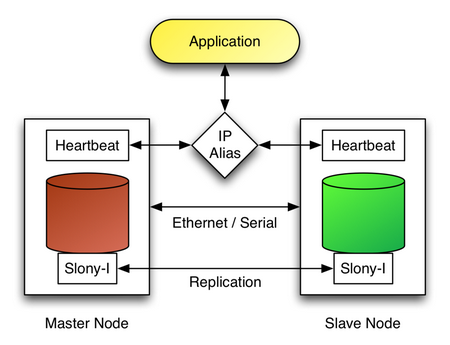16
2012
What is Database Replication?
For anyone who has ever had problems with handling their bulk data, whether for personal use or for office purposes, the importance of database management cannot be emphasized enough.
A lot of major corporations as well as individuals who run their own home-based businesses rely heavily on the computer for storing their important data among other things. This is why database management has become a key player in the success of any business venture because it helps keep track of all the important information needed in order to service clients better and basically have better outputs to likewise better provide their products and/or services.
Database Replication
Now that database management has become mainstream, the importance and relevance of database replication has likewise become a staple in any database management system. In fact, it is one of the major requirements of companies or individuals seeking the services of a good database software/application.
In simple terms, database replication means that your database is kept in storage in two separate servers – one as backup, in a manner of speaking. What it does to your business is that it ensures that, should your main database management system kept in the main server suddenly go haywire, your slave DBS server works in its place.

To anyone who wants to run their business data as smoothly as possible, this is reason to breathe a sigh of relief because it means that you will never experience having to risk losing good business should your database management system all of a sudden go kaput on you.
Recoverability, reliability and efficiency also reflect on the replicated database, just as much as it is evident on your main database system. This means that, whether you run your DBMS on your main server or you run it on your slave server, the efficiency and accuracy remain the same.
Other Advantages of Database Replication
As if it were not enough, database replication has several other great aspects that you will appreciate. As mentioned, the accuracy and efficiency of the replicated database are the same as the main database system.
What this means is that, when you perform certain tasks on your DBMS, changing, altering and basically manipulating you data on your main server, the changes and any other tasks performed are likewise reflected on the replicated database.
So whether your network of users is accessing your database through the main server or through the slave server, the changes that have been made will be seen on both databases. Simply put, when you update your data on the main database system, the same updates are applied to the replicated database.
Understanding the importance of database replication, database management software providers usually include this feature in their services so as to accommodate the requirements of companies and individuals.
Otherwise, you can look for database replication software providers who can accommodate the kind of database management system that you already have in place to ensure that your database replication will work just as smoothly as your primary database system.
Further readings
Advertisements
Recent Posts
- What is a Disaster Recovery Data Center
- What is a Relational Database?
- What is a Flat File Database?
- What is a DSN or Database Source Name?
- What is a Disaster Recovery Plan?
- What is an Open Source Database?
- What is Disaster Recovery?
- What is a Database Cluster?
- What are Database Servers?
- What are Database Forms?
Random Posts
- What is an Online Database?
- What is a Database Migration?
- What is a Flat File Database?
- Database Architecture
- What is a MySQL Database?
- Database Consulting Services
- What is a Database?
- What is JDBC or Java Database Connectivity?
- Where to Get a DBA Certification?
- What is a BLOB or Binary Large Object?

 An article by
An article by 




